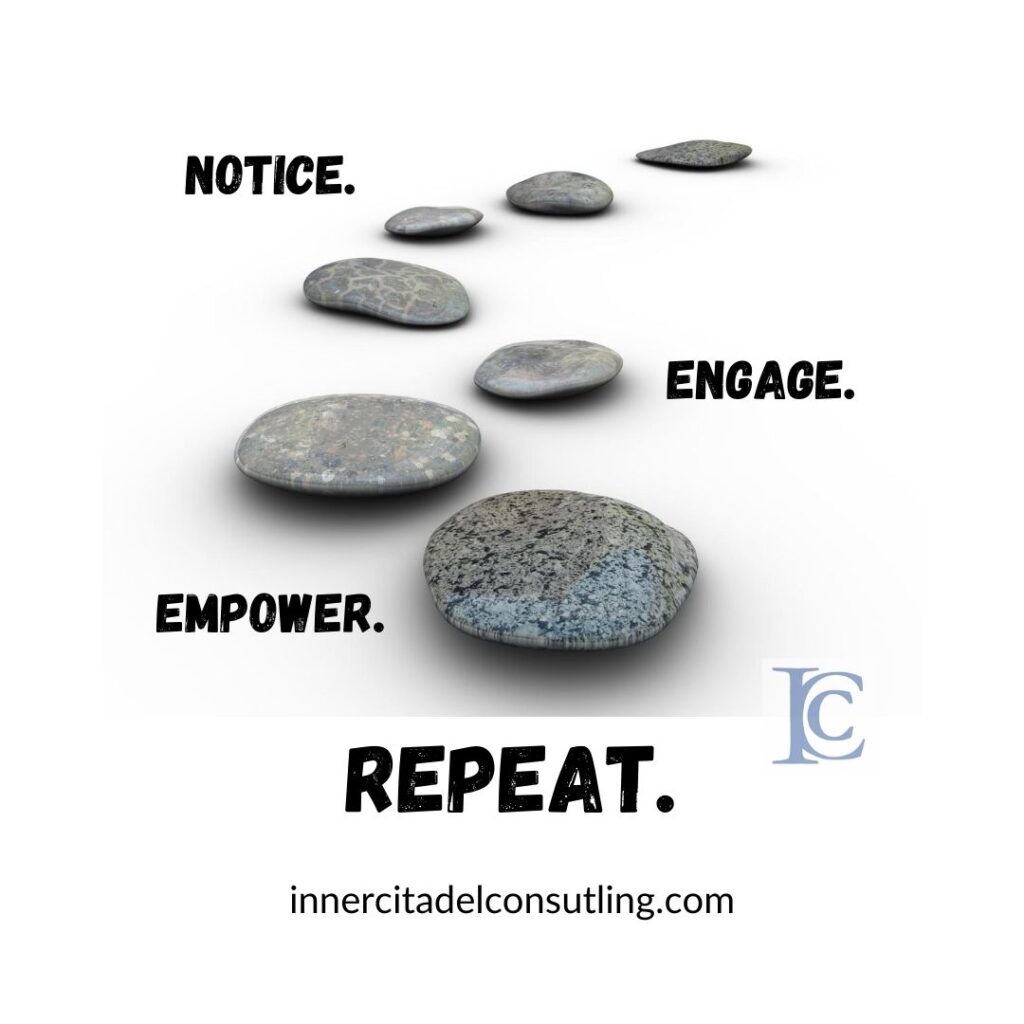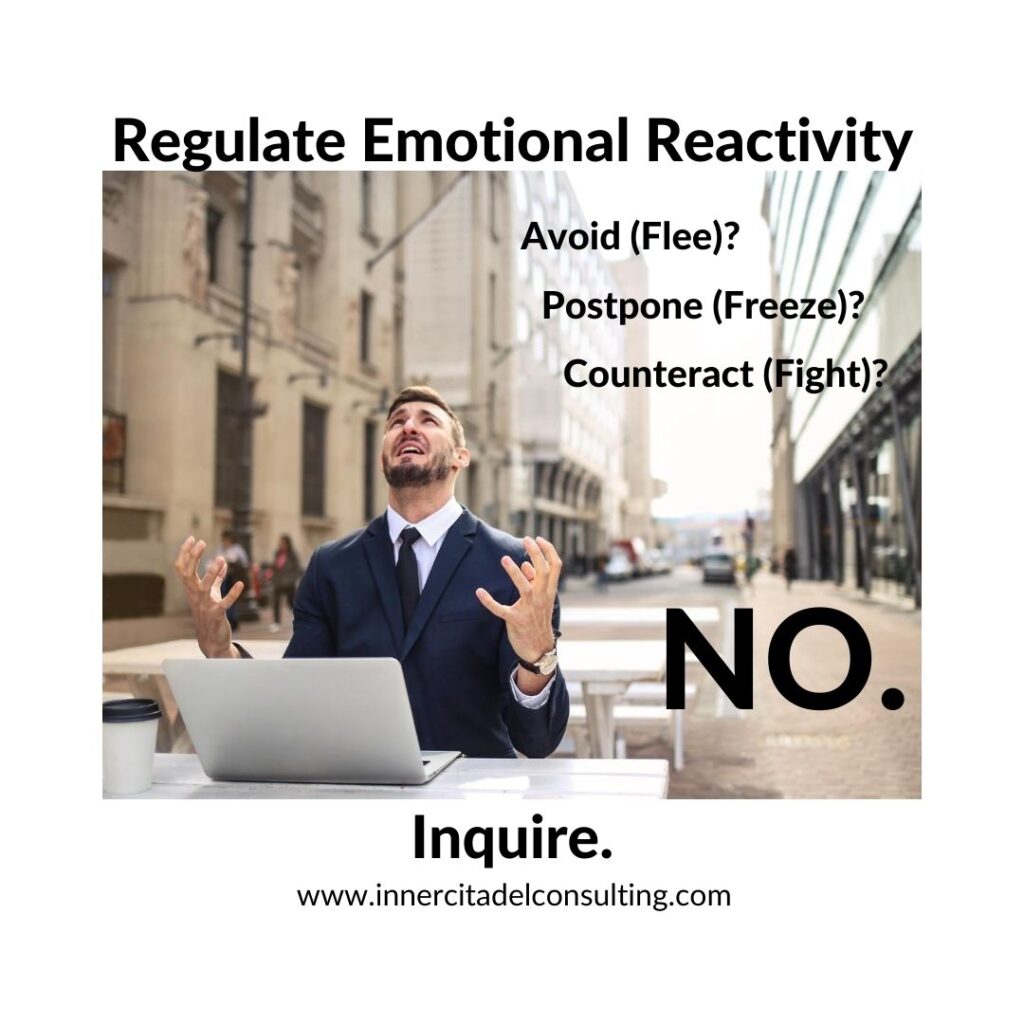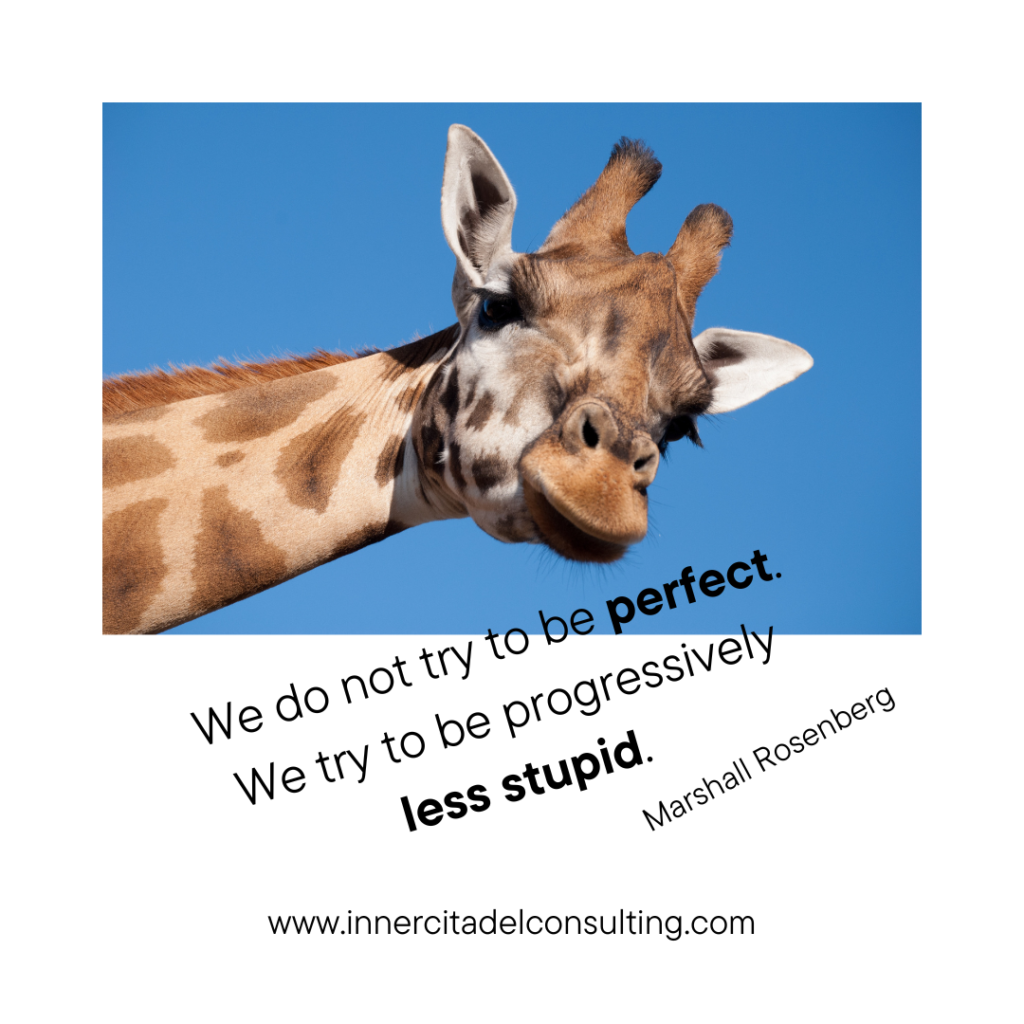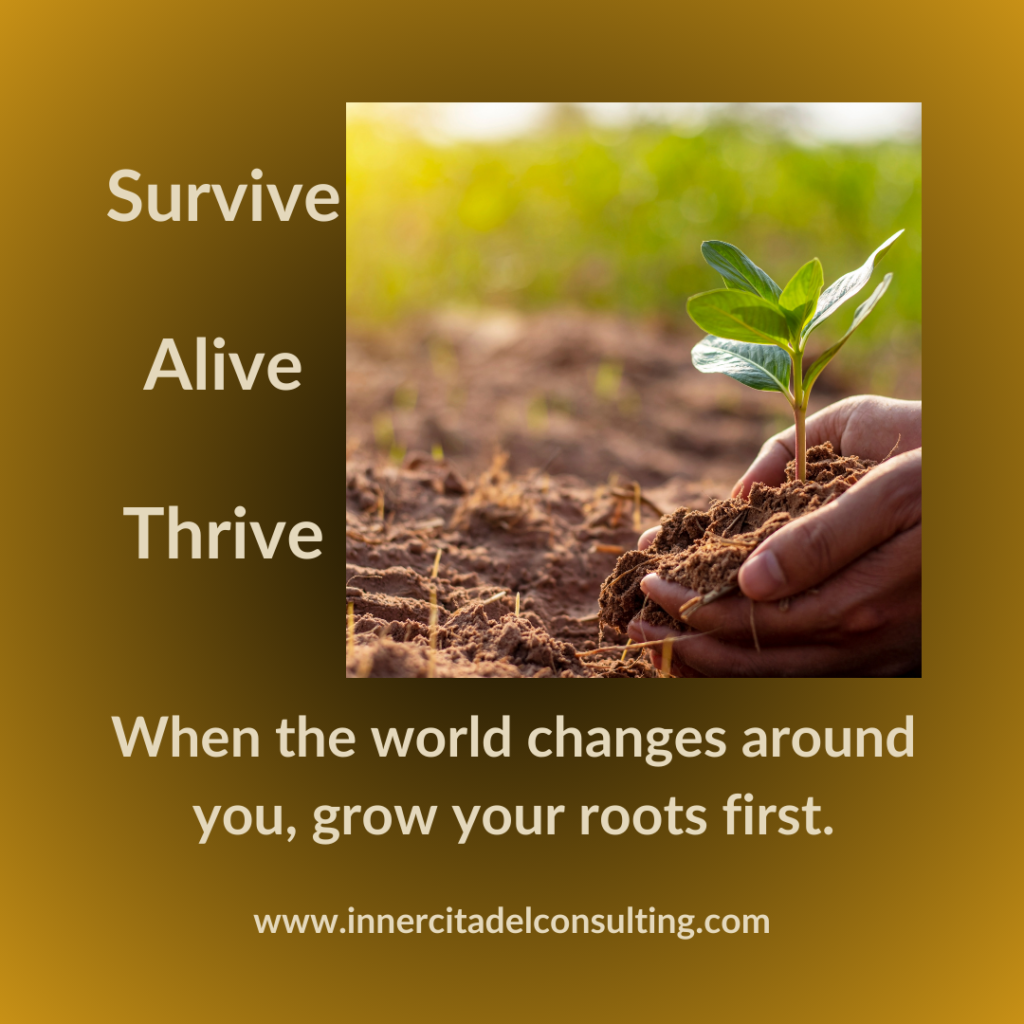Our capacity to reason, intellectually and emotionally, is our human superpower.
VUCA and OODA are acronyms you have probably run across in your leadership training. Volatility, Uncertainty, Complexity, Ambiguity — these define our lives now during the pandemic, but they were always part of our lives. It’s true that the speed of change has increased, and that volatility is more intense and perhaps even more broadly consequential than a century ago. But this experience of the world is not a new one. Observe, Orientate, Decide, Act — a decision loop developed by USAF Col. John Boyd that has been adopted by leaders in some industries to help mitigate the VUCA-ness of life and work. Discussions of OODA I’ve seen don’t always dig into the core of Boyd’s model, Orientate, in which he outlined five dimensions at play, nor do they always underscore how many internal feedback-loops he outlined. But the basic idea, that we seek information, consider it, and then decide to act is not a strange one.

In fact, that basic sequence is the core of Inner Citadel Consulting’s system: Notice, Engage, Empower. What is brilliant about Boyd’s method as a response to difficult and complex situations is how much the decision process slows in the middle. Orientate is not one thing — it is a full and detailed consideration of many factors that influence a single moment. Orientate suspends the moment so that we can turn it and look at it from all sides. It makes total sense to me, from my background in tai chi as a martial art and my mindfulness practice, to counter volatility with deceleration. It is also intelligent, cognitively and emotionally. And it reflects the basic concepts embedded in Stoic psychology of perception and decision-making.
VUCA describes a situation, an evolving circumstance, in which the complexity of decision-making is made even more difficult to manage. OODA describes a solution to complex decision-making, of which the most significant part falls into Orientate. What I’ll lay out below is another way to approach such a solution. The thing I find most limiting about OODA is the relative lack of attention to the emotional response to VUCA. Cultural traditions, genetic heritage, previous experience, new knowledge, analysis & synthesis — very rational considerations. But not fully human without consideration of emotional experience and values. Believe it or not, Stoicism is in fact all about emotional value, not emotional suppression. Anyway, what I mean here is not that we need to integrate the expression of emotions, but we need to figure out the way in which the emotional response is not accounted for in the OODA loop. OODA privileges intellectual reason but does not fully account for emotional reason.
I suggested that ambiguous, volatile, and uncertain, complex moments are not new to the human being. Thinking about a solution for such moments is not new either. The Stoics framed a psychology of decision-making that, like the OODA loop, encourages us to decelerate and evaluate. Now, their particular solution to complex decision-making is tied up in a number of basic philosophical assumptions, such as strict materialism and a kind of cosmic optimism and providential worldview. This is all very interesting stuff and can get very distracting, but the upshot for this discussion is that the Stoic solution to complex decisions is ethical first and foremost– it places all ownership and responsibility for a decision and an action on the decision-maker. This ethical decision-making necessarily involves the whole human being in the decision.
For the Stoics, human beings receive input not just from our senses but also from our thoughts & feelings. These sensory inputs form “impressions”, which are then “perceived” by our minds. The difference between the sensory input and a perception is very important, because while an object or event might produce the same basic impression for a number of people, we might each perceive something very different. When we perceive these impressions, especially of certain kinds of things (unfortunately, often the exact things that are surrounded in complexity), we eventually make evaluative judgements (this is good, this is bad, this hurts, this feels good). We could verbalize these perceptions and judgements, although we often process them far too quickly to even notice what’s going on much less put it into words. “There is a donut on the plate,” and suddenly the donut is in my hand and I’m eating — this is a series of impressions, perceptions, evaluative judgements, and (in the end) actions. At a minimum, I would have to have evaluated the donut as something I can eat. When we perceive and perform these evaluative judgments (what we might call intellectual and emotional judgments), according to the Stoics, we also can agree or not with the evaluation. They call this assent.
Assent is the moment when, in this Stoic model, we can decelerate, slow down, examine the complexity. Without this capacity to decelerate — where we engage our full, human reason through intellect and emotion, we are simply animalistic, living only, I suppose, by instinct. For example, I see or smell or touch or think about the donut; I perceive it as a donut (as opposed to a bagel, or some other circular object); consciously or not I evaluate the “donut-event”, let’s call it; and then I act. I don’t just start eating it when I perceive it, like a dog chasing a squirrel. I must “assent” to any number of evaluative judgments. For example, that donuts are good for eating, that I like donuts of certain kinds, that this is a donut of one of the kinds I like, (maybe) that it’s good to eat when hungry, or that a donut would be a good thing to eat right now, or that donuts make me happy and I feel sad right now … and so on, all the way to me licking my sticky fingers and wondering where the donut went. And this is the place where many of my decisions become ethical. “Was that the right thing to do?” “Was that even my donut to eat?” It’s also the place where I can make really terrible mistakes, and where we all act out of unconscious bias.

Assent for the Stoics created a belief, and the belief always precipitated an impulse to act. In simple terms, when I assented at every stage in the example above, I affirmed my belief, and that belief led to another perception and another evaluation, assent, belief… all the way to the final act of eating and the consequence. At any point in the chain of perceptions and evaluations we have the capacity not only to verify the perception factually as much as possible but also to verify the evaluations emotionally, through emotional reasoning. Not only, “Am I hungry? Do I need these kinds of calories?”, but also, “What am I feeling when I see the donut? Do I really want the donut or something else? How will Sam feel about me eating the last donut?” The Stoics assert that when we assent to our evaluation, we affirm our belief in the evaluation, and an impulse to act arises. But they allow us to engage our humanity, to pause in assenting to an evaluation, sometimes even to withhold our assent until we can properly decide, to either spend more time evaluating — checking in with head and heart. “Why don’t I wait a few minutes to see if I still feel like eating the donut?” “I’ll ask Sam whose donut it is.” “I feel like I’m avoiding something by eating this donut — I wonder what else I could do.” Giving and withholding our assent is our human superpower. It involves our full capacity to reason, which is both intellectual and emotional. And when we combine our intellectual and emotional reasoning as leaders we can be decision-makers and leaders with humanity.
We are definitely living a VUCA-life these days, volatile, uncertain, complex, and ambiguous. We just can’t pause and reflect on every decision, although we can pause to reflect on many more than we do currently. And we need processes and models that help us cope, like Boyd’s OODA loop. But we also need models that will help us integrate the range of our reasoning capacities, to make fully human decisions. My donut example is kind of silly, but we can make it serious, deadly serious: I see a young African American man running on my street. I’m not including this to make light of the murder of Ahmaud Arbery, or any one of countless acts of racially motivated violence. I’m using this example because for the Stoics there is no real difference, from a psychological point of view, between the decision process that leads to eating a donut or murdering a human being. It is all ethical, it all rests on the capacity of a human being to evaluate their perceptions, to regulate their actions intellectually and emotionally, with full humanity and a willingness to withhold assent when we can’t be sure. Obviously, we must at least start at the level of equal human worth, but the ideal Stoic, the Stoic Sage, makes every choice ethically. It’s not that it’s impossible, it’s just that it’s really, really hard.
If we cannot find way to engage with the complexity of our current reality individually and collectively, the increase in all the aspects of VUCA we face will crush us, body and soul. Systems like OODA work, of course. People wouldn’t use them if they didn’t. What I wonder is if they work fully enough to help us keep our humanity while the world is speeding up and growing more uncertain, complex, and ambiguous. Do you want to be more stoic about life? Then be more human, learn also to reason through what emotions you are feeling and what emotions are relevant to the decisions you make. Livin’ la vida VUCA seems inevitable these days, but let’s live it like human beings.





